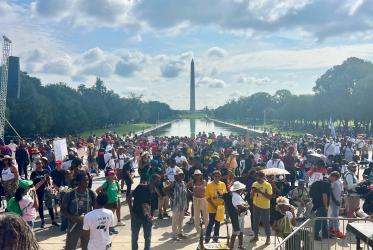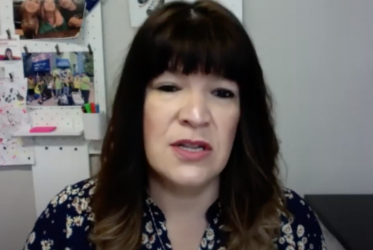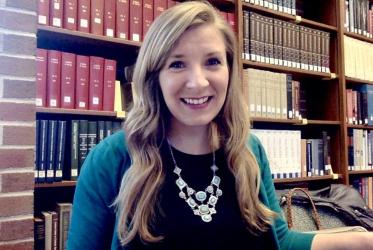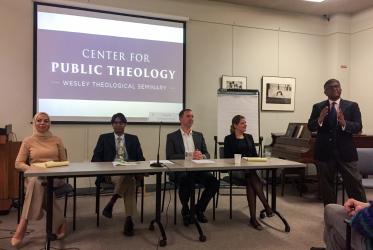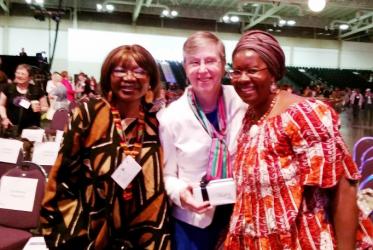Displaying 1 - 18 of 18
Dr Saïd Ailabouni: God is on the side of rejected, oppressed, occupied
12 September 2019
How can you help refugees?
11 October 2018
Faces of Hope raises awareness
07 March 2018
Momentum builds for ban on nuclear weapons
16 December 2014
2014 UMW Assembly: Women make it happen
30 April 2014
Dialogue on HIV, sexual reproductive health and rights
12 March 2014

